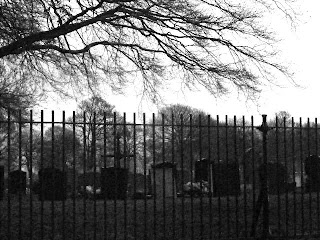Walking to music lessons down Wyresdale Road

Turning left at the cemetery
Wishing I too lived next to a graveyard
Under the railway bridge
And down Roosevelt drive where Mrs Richardson taught us to play Little Brown Jug on mandolin. There was a great bank of Michaelmas daisies at the bottom of the road.
“Dad, I heard this guy whistle today.”
It was my daughter, and the shock came slowly. She’d said it as if she’d seen an alien, or Vladimir Putin skateboarding in the park. When was the last time I’d whistled? I raised the paper up to hide my face and tentatively puckered up my lips. They were dry and little or no sound came out - though enough to arouse suspicion.
“Dad, what’re you doing?”
“Whistling,” I said feebly.
As a boy I always whistled. It got me through the paper-round, that and a large mint-ball - though never at the same time. I tried once and almost choked. My range was vast and eclectic, the more popular overtures - (Ride of the Valkyries always posed a bit of a problem after the opening bars) - Gilbert and Sullivan, courtesy of my parents, Elvis, Jerry Lee, old English folk songs, and at Christmas, carols. If it had a tune, I’d whistle it.
There was no competition. There were no birds in Liverpool other than sparrows and pigeons, and they could only twitter or coo. Old ladies gave me generous tips; swore I was better than any alarm clock - so that was something else I was better than.
In the pre I-Pod age there was only the whistle and apart from waking up old ladies, it gave me the greatest gift of all: an ear for music. I read music like a Zulu reading Greek, but give me a mandolin and let me hear a tune once and I’ll have it almost at once.
The mandolin was another cul-de-sac when you consider it. In a Liverpool waking up to the Beatles before the rest of the world what was I doing with a mandolin? Blame it on Miles Hartley.
He’d bought one from a second hand shop in Rice lane. My brother Tony immediately copied him and bought a beautiful flat-topped mandolin for about ten shillings (a dollar). I wanted one and ran to the same junk shop as though there might be a never-ending supply. There wasn’t. I came home with a metal and skin monstrosity - something called a Banjolin. Not a Banjo-mandolin, but a Banjolin. It’s so weird it’s not even in the Oxford English dictionary; it didn’t belong to this world, but that’s what it was called, a Banjolin. And I hated it. We went to music lessons, me, Tony and Miles and played endless scales, and tunes that always sounded like ‘Little Brown Jug.’
There was a worse fate for Tony, worse even than playing ‘Little Brown Jug’ on the Banjolin. His beautiful flat-backed mandolin broke. He dropped it in Greenwich Road. He couldn’t afford another but still wanted to be part of the gang who were now famous throughout Aintree for their version of Little Brown Jug.
“There’s the piano,” my mother said hopefully, and he jumped at it like a doomed piranha fish.
Miles gave up the lessons and sometime later so did I. Tony was never allowed to. Mandolins were a cheap, slightly exotic fad but the piano was serious. Our Dad had decided. Tony would stick with the piano whether he wanted to or not.
In years to come I played badly in a Ceilidh Band, Tony played jazz piano for comfort, and two days ago I was staring over a paper at my daughter who’d heard someone whistle.





No comments:
Post a Comment